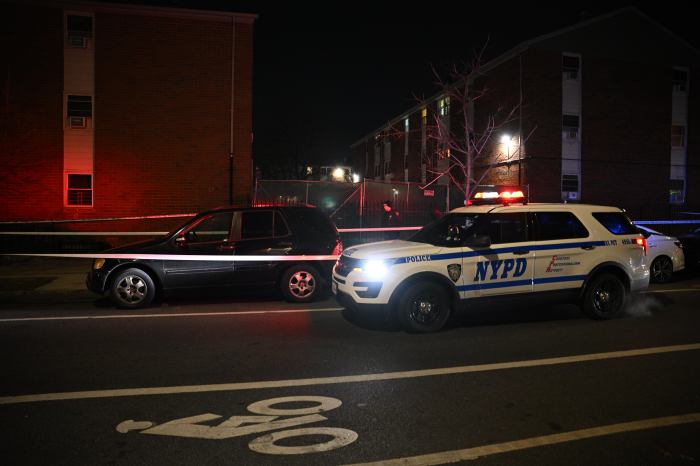Eight years ago, Maestro Silas Huff had just returned to Astoria from Berlin looking for work as a musician. During this search, he noticed many other people, all with instruments and that familiar, unemployed look in their eyes.
“I kept noticing people in the subway waiting for the N train with their instruments,” he said. “There was very little work for musicians, so I started the Astoria Music Society.”
After deciding that Astoria, and Queens, needed a venue for classical musicians, Huff, the music director at the society, began the difficult task of recruiting orchestra members. He walked the streets of Astoria and chased down anyone he saw with an instrument, assembling a ragtag bunch of underpaid, but highly grateful, orchestra members.
The budget for that first season was preciously small and Huff relied mostly on his musicians’ willingness to work as volunteers. However, as the group’s profile grew, so did its budget and reputation. Thanks to grants and private donations, Huff was able to oversee the hiring of better, more professional musicians.
“There’s a big time revolving door with the members of this orchestra. It has evolved to be more professional,” he said. “Nowadays, we have a nearly entirely new group of people, though there are some who remain from early years.”
Along with growing in size and prowess, the orchestra’s audience has multiplied as well. Unfortunately, Huff said that he still meets people on the street who have no idea that Astoria has a space for classical music.
“We don’t have a huge presence among the average, everyday person,” he said. “But we are pushing hard with social media. Word of mouth is probably the best way for us to grow our audience. We need people to come in, experience the music and then tell their friends about the time they had.”
In order to give Queens a professional symphony, Huff must oversee a lot of fundraising. It is probably the most difficult part of his job, requiring a lot of phone calls and face time with local politicians. City councilmembers and state assemblymembers help facilitate the process involved with applying for grants. The rest of the funding comes from private donors, business sponsorships and ticket sales.
“Funding this type of organization is like building a very complex puzzle,” he said. “If any one piece goes away, we’re up the creek.”
Huff wants to provide the community with events because he believes that the performing arts are a necessary aspect of any successful community. Without space for musical performances, society loses out.
“Every community needs a couple of really important things; affordable housing, places to eat, sewers, fire departments. One of the things a community needs is performing arts,” said Huff. “Music is one of the things that separate man from beast. Plus, cities that have a great musical community stand out from cities that don’t.”
To find out more about the Astoria Music Society, including upcoming performances or to help with fundraising efforts, check out www.astoriamusic.org. Also, follow them on Twitter at www.twitter.com/astoriasymphony and also on Facebook.































